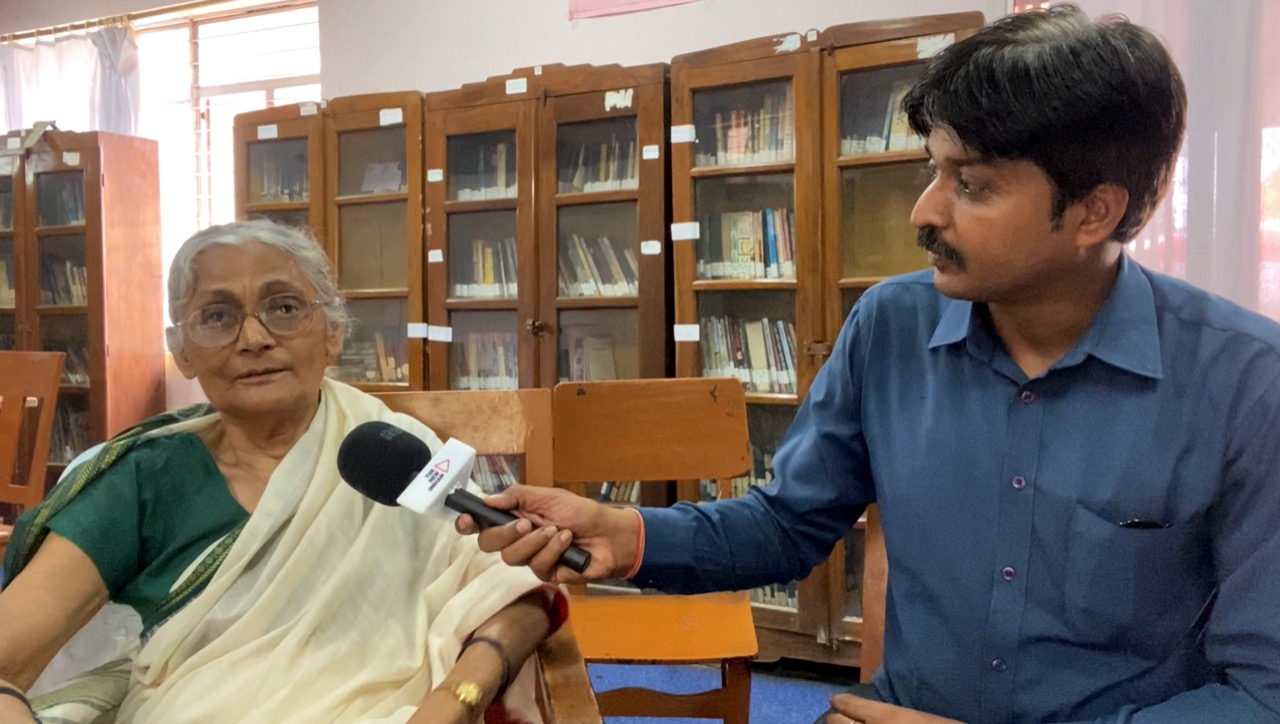


PATNA: “In June 1940, Prabhavati Devi, the wife of Jai Prakash Narayan, after the Ramgarh Congress Convention, came to Patna Mahila Charkha Samiti with three charkhas and five women. They slowly started weaving the threads and gradually, women started participating in the independence movement and were even arrested. Prabhavati Devi was also arrested and Narayan, after his arrest, escaped from the Hazaribagh jail,” said Tara Sinha, the granddaughter of India’s first president Rajendra Prasad, while speaking exclusively to The New Indian at the Mahila Charkha Samiti, situated in Patna’s Kadam Kuan area.
Sinha headed Mahila Charkha Samiti between 2006 and 2010 as its president. In the same building, Prabhavati Devi started the Charkha school in 1940 on rent. “Prabhavati Devi was a woman of that era when many people were sceptical about independence,” she underlined.
Sinha, whose mother was married to Mrityunjay Prasad – the elder son of Dr Rajendra Prasad — said: “Prabhavati Devi and JP Narayan sacrificed a lot and similarly, Rajendra Prasad left his legal practice and sacrificed everything they had for the freedom of the country.”
Recalling the early life of Prabhavati Devi, Sinha said, “Babu Brajkishore Prasad was a fearless man and she inherited the qualities of her father. She also met Mahatma Gandhi. She was married at an age of 14 years to Jai Prakash Narayan.” Sinha further said that when Narayan went to the US for higher studies, she went to Sabarmati Ashram and stayed for seven years with Bapu and Kasturba Gandhi.
She said that Prabhavati Devi, during her stay at Sabarmati Asharam, decided to be a celibate. “I would praise Narayan for backing the decision of Prabhavati Devi in that time to be a celibate. Even Mahatma Gandhi informed Narayan about Prabhavati Devi’s decision and asked him to marry again with another woman; he brushed off his suggestion,” Sinha said.
“Mahatma Gandhi, after his return from South Africa in 1917, visited Bihar to fight against the British atrocity against farmers,” Sinha said. She added that Bapu stayed in Bihar for 10 months and he started work here and was joined by Babu Brajkishore Prasad, who left his lucrative legal practice to join the freedom struggle.
Sinha felt that politics has become a “lucrative business” now and the politicians of this generation are nowhere near the leaders who participated in the independence movement and led the country after freedom in 1947. She pointed out that the freedom fighters and politicians of that era wanted to take India to new heights and sacrificed their lives for the same.
Taking a pot shot at the current lot of the politicians, Sinha said, “Today, people come into politics as it is a lucrative business. The people who entered politics during the freedom struggle knew that by entering into this field, they would have to suffer a lot. And even after independence what they did for the country and how they led their lives is still a precedent.”
“Nowadays, if a politician becomes an MLA or MP, they earn a lot for their generations. Wherever they see their gain, they make their move. Everyone keeps on saying that they want to serve the people. Now saying to serve people of the country has become rhetoric,” she said.
When asked if she feels that the values of the great freedom fighters are still alive in the country, she said, “Where are those values alive now! The people who get associated with institutions like Vidyapeeth (founded by Mahatma Gandhi in 1921) or Charkha Samiti (founded in 1940) also keep thinking of their monetary gains. However there are few who still keep on working to preserve the ethos and values and they have kept such institutions alive.”